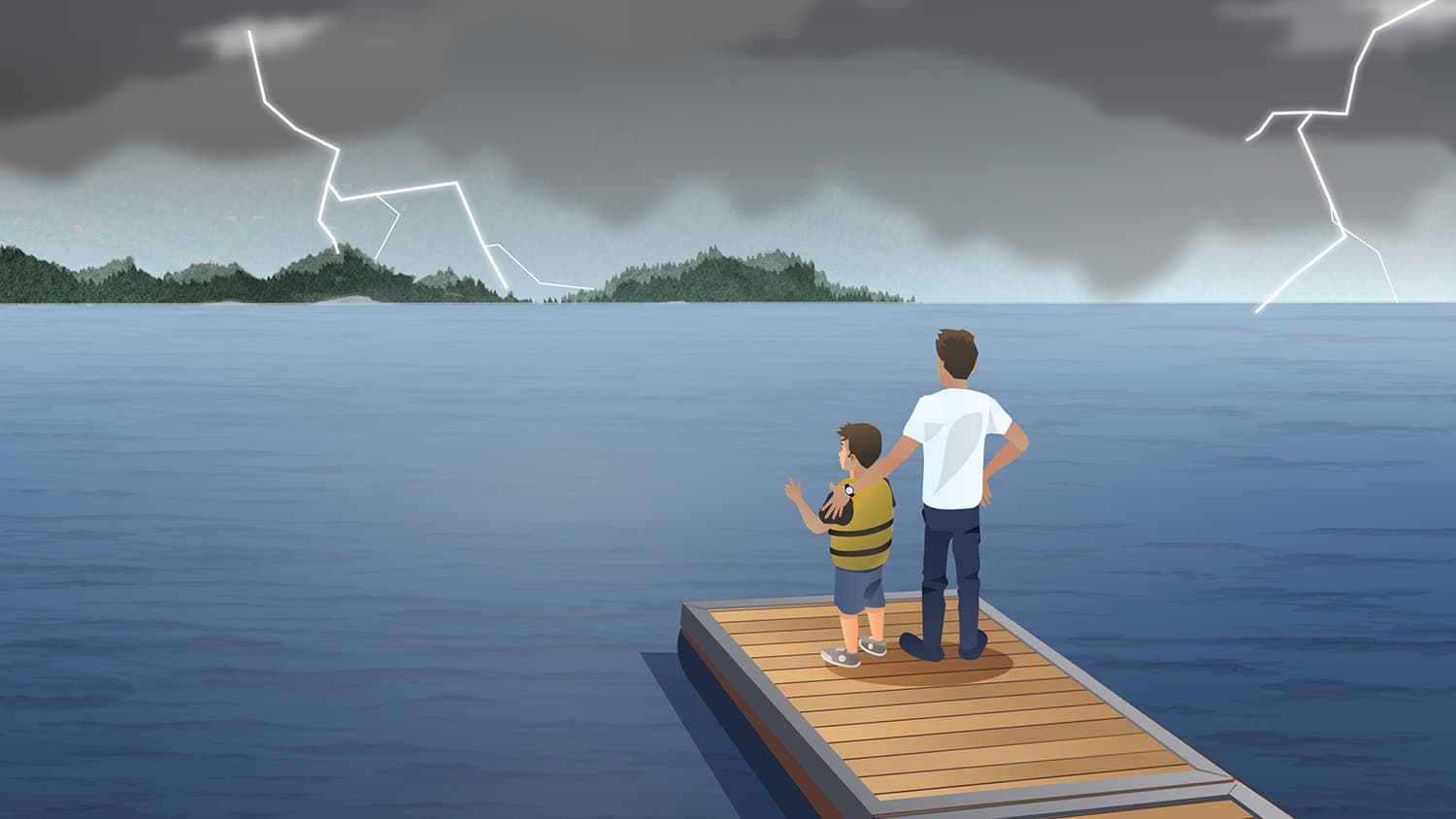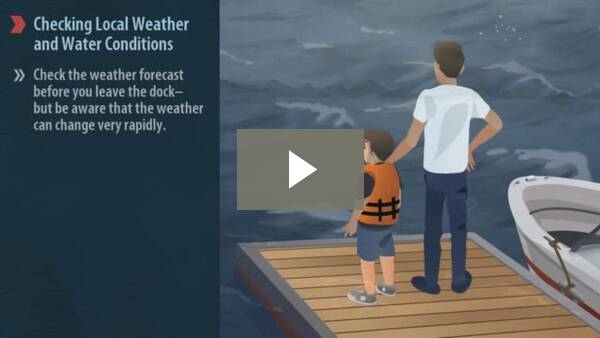The person who is responsible for checking local hazards and the weather forecast before a boating trip is the boat operator. The boat operator is the person who is in charge of the boat and its passengers, and they have a legal responsibility to ensure the safety of everyone on board.
It is important to check local hazards and the weather forecast before a boating trip to make sure that the conditions are safe. Some of the things that you should check for include:
- Weather conditions: Check the forecast for the day of your trip and make sure that the weather is expected to be safe for boating. Avoid boating in severe weather conditions, such as thunderstorms, high winds, or heavy rain.
- Water conditions: Check the water conditions for the day of your trip and make sure that they are safe for boating. Avoid boating in areas with strong currents, waves, or other hazards.
- Local hazards: Check for any local hazards that may be present in the area where you will be boating. This could include things like rocks, reefs, or other underwater obstacles.
By checking local hazards and the weather forecast before a boating trip, you can help to ensure that your trip is safe and enjoyable.
Here are some additional tips for boating safety:
- Always wear a life jacket.
- Obey all boating laws.
- Be aware of your surroundings.
- Don’t drink and boat.
- Be a responsible boater.
By following these tips, you can help to ensure a safe and enjoyable boating experience.
The person responsible for checking local hazards and the weather forecast before a boating trip is the captain of the vessel. The captain is responsible for the safety of everyone on board and must make sure that all potential risks are considered before setting sail. Checking the weather forecast is essential in order to ensure that conditions are safe for travel.
Local hazards can vary depending on the area, so it is important to be familiar with these before embarking on a trip. By taking these precautions, captains can help to ensure that their passengers have a safe and enjoyable experience while out on the water.
Before heading out on a boating trip, it is important to check the local weather forecast and hazards. This will help ensure that you have a safe and enjoyable time on the water.
There are a number of ways to check the weather forecast.
You can check your local news or weather website, or you can download a weather app for your phone. Once you know what the conditions will be like, you can plan accordingly. If there is bad weather in the forecast, it may be best to postpone your trip or choose a different location.
In addition to checking the weather forecast, you should also be aware of any local hazards. This includes things like sandbars, rocks, shallow areas, and strong currents. These hazards can be difficult to see from land, so it is important to do your research before setting sail.
You can talk to other boaters in the area or look for posted signs about potential dangers. By being aware of these hazards, you can avoid them and stay safe on your trip.

Credit: boatsmartexam
Who is Responsible for Checking Local Hazards in the Weather Forecast for a Boating Trip?
The captain of the vessel is responsible for checking the weather forecast before setting out on a boating trip. They should be aware of any local hazards in the area, as well as expected changes in weather conditions. It is also important to have a backup plan in case of severe weather.
When Should You Determine the Local Weather Forecast?
There is no definitive answer to this question as it depends on a number of factors, including what you are planning to do and where you are located. However, as a general rule of thumb, it is always a good idea to check the local weather forecast before embarking on any outdoor activities. This way, you can be sure that you are prepared for whatever conditions may arise.
When Checking the Water Conditions before Getting Underway Which of the Following Should You Should Be Wary Of?
If you’re getting ready to head out on the water, there are a few things you’ll want to check first. Water conditions can vary greatly and it’s important to be aware of potential dangers before setting sail. Here are a few things to look out for:
– Strong currents: Currents can make it difficult to control your vessel, so be sure to check for any areas of high or low current before getting underway.
– Poor visibility: If the visibility is poor, it will be more difficult to navigate and avoid hazards. Be sure to check the forecast and only venture out if conditions are safe.
– Rough seas: Seas can get rough quickly, so it’s important to always monitor the weather conditions. Before heading out, check the forecast and waves heights to ensure it is safe to do so.
Where Can Boat Operators Obtain Information About Local Hazards?
Boat operators can obtain information about local hazards from a variety of sources, including the Coast Guard, local marinas, and online resources. The Coast Guard maintains a database of navigational hazards that is available to the public, and marinas typically have up-to-date information on local conditions. Online resources such as NOAA’s nautical chart viewer can also be helpful in identifying potential hazards.
Marine weather safety: 5 vital checks
Boat Operators are Responsible for Which of the Following?
Boat operators are responsible for a variety of things, but there are four main areas they need to focus on: safety, navigation, communication, and environmental awareness. Let’s take a closer look at each of these areas.
Safety is always the top priority when operating a boat.
Boat operators need to be aware of the potential hazards both on and in the water. They should have a plan in place in case of an emergency and know how to operate their boat safely under all conditions.
Navigation is another important responsibility of boat operators.
They need to know how to read nautical charts and use navigational aides such as GPS systems. They should also be familiar with the local waters where they will be boating.
Communication is essential for safe boating.
Boat operators need to be able to communicate with other boats nearby using radio or visual signals. They should also know how to call for help if necessary.
Environmental awareness is also important for boat operators.
They should know how to properly dispose of waste, avoid polluting the water, and respect wildlife habitats.
Conclusion
The boating season is upon us and that means it’s time to start thinking about safety on the water. One of the most important things to do before heading out on a boat is to check local hazards and the weather forecast.
Who is responsible for this?
The captain of the vessel, of course! It’s the captain’s responsibility to make sure that everyone on board is aware of any potential dangers and that they have a plan in place in case of an emergency.
Checking the weather forecast is also crucial, as even a small change in conditions can make for a treacherous journey.
Knowing what to expect ahead of time will help you be prepared for anything that comes your way.
So, before setting sail this boating season, be sure to do your due diligence and check for hazards and review the forecast. It could mean the difference between a fun day on the water and a disaster.

